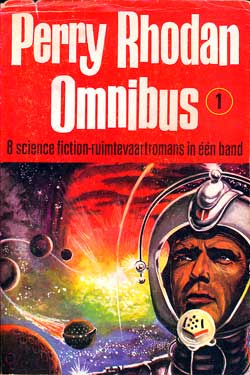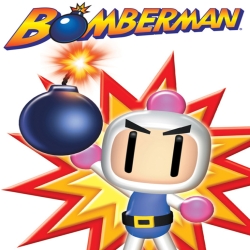
-
Aantal items
255 -
Registratiedatum
-
Laatst bezocht
Inhoudstype
Forums
Kalender
Blogs
Berichten die geplaatst zijn door Uitgeverij Bonte
-
-
-
En dan nog
Kogel Man
Bom ManSuper man
Bat man
Spinne man
Cat woman
-
Of gewoon "Kogel" en "Bom", dat het een mens is mag duidelijk zijn.
-
Mens Kogel
Mens Bom
Niet te ver zoeken. Doet me wat denken aan "Meester Tovenaar" van Maarten Toonder
-
Ze hebben er al veel herdrukt dus als je geen 1e drukken van de reeks wil is het goed te doen, het zijn mooie uitgaven.
-
In Utrecht staan toch nauwelijks strips?
Gent is 2 grote eetzalen in een schoolgebouw, het staat lekker vol en met een vast kooppubliek. De nadruk ligt niet op de signerende tekenaars maar verzamelaars met regelmatig een speciale veiling en beurs-uitgave, een aanrader.
-
Stripelmagazine is goed op dreef met een kort gesprek met Tom Bouden over De Lustige Kapoentjes bundeling en met Yncke over haar debuutalbum Per'Bat, Het Kristal van Argo. Beiden zijn aanwezig op de stripbeurs.
Tom Bouden
http://www.stripelmagazine.be/de-lustige-kapoentjes-zijn-een-beetje-van-iedereen/
Yncke
-
Voor mij Guust, Robbedoes, Natasja, Guus Slim, Blauwbloezen en Isabel.
-
Ik heb een collectie Perry Rodan in de aanbieding, zo'n 10 bakken vol. Volgens de vorige eigenaar zou die bijna compleet moeten zijn maar de eerste nummer zitten in een soort bundeling die later is verschenen maar ik heb het allemaal niet nagekeken, enkele boeken zijn ook gesigneerd door de schrijver.
3/4 van de collectie is nederlandstalig, 1/4 is Duits omdat ze toen niet meer vertaald werden volgens de vorige eigenaar. Het is alvast een hele hoeveelheid, alles in goeie staat.
Alles voor 200 euro, af te halen in Brugge. Verzenden lijkt me moeilijk maar misschien doenbaar via Kiala.

-
Ik ben het niet meer gewoon om een verhaal per strook te lezen, spannend.

-
Dus die zwarte zwaan zal mettertijd alle witte zwanen verdringen? Die witte zwanen planten zich dan enkel maar meer voort met die zwarte?
Ik denk dat de konijnen in Down Under wat verkeerd gekozen zijn als referentie daar er in DU geen predator was die de konijnenpopulatie wat in kon perken.
De drang naar voortplanten bij zwanen kun je trouwens ook moeilijk vergelijken met konijnen...
Ach, politici...
Het blijkt dat de zwarte zwanen een andere soort zijn dan de knobbelzwanen, het is eerder een trekvogel van Australië. Ze kunnen kweken maar de nakomelingen zijn onvruchtbaar, het gaat in Brugge dus eigenlijk uitsluitend over het visuele aspect en ziektes.
De opwarming zorgt wel voor meer en meer exotische dieren, dat gaan we niet kunnen tegenhouden.
Ik heb het zelf een piepkleine kangoeroe-muis gezien rond m'n huis, ik wist niet dat die hier zaten. Wel leuke beestjes en erg tam, ik kon het gewoon oppakken.

http://www.smoothweb.be/content/de-kangoeroemuis-een-vreemd-diertje-video
-
Ik hoor vaak zeggen dat de kost van drukken en papier minimaal is. Over welk procentueel bedrag spreken we dan?
In grote oplages van 10.000 of meer kost een gewone strip 0,50 per boek om te drukken, wil je in krantenwinkels geraken moet je er een 35.000 drukken, 70% korting geven voor verdeling en de niet verkochte restanten worden vernietigd of gedumpt.
-
Ah, waarschijnlijk is dit geen probleem van het forum maar de site waar de afbeelding van komt.
Probeer eens verschillende afbeeldingen te posten en dan kijk ik in je post waar het verkeerd loopt.
-
Verander eens de extensie van jpeg naar jpg, vanavond kan ik eens kijken om extensies toe te voegen.
-
Zopas als Kindle auteur (zonder boeken) volgende mail ontvangen van Amazon, ze willen blijkbaar een petitie starten tegen Hachette die de prijzen van e-books te hoog wil houden.
Enerzijds geef ik Amazon gelijk omdat het inderdaad veel goedkoper te produceren is dan papier maar anderzijds is het wel een bedrijf die zonder scrupules z'n machtspositie gebruikt om kleinere firma's uit de markt te concurreren en nadien de prijzen te verhogen. Het is dus belangrijk dat Amazon concurrentie heeft.
Just ahead of World War II, there was a radical invention that shook the foundations of book publishing. It was the paperback book. This was a time when movie tickets cost 10 or 20 cents, and books cost $2.50. The new paperback cost 25 cents – it was ten times cheaper. Readers loved the paperback and millions of copies were sold in just the first year.
With it being so inexpensive and with so many more people able to afford to buy and read books, you would think the literary establishment of the day would have celebrated the invention of the paperback, yes? Nope. Instead, they dug in and circled the wagons. They believed low cost paperbacks would destroy literary culture and harm the industry (not to mention their own bank accounts). Many bookstores refused to stock them, and the early paperback publishers had to use unconventional methods of distribution – places like newsstands and drugstores. The famous author George Orwell came out publicly and said about the new paperback format, if “publishers had any sense, they would combine against them and suppress them.” Yes, George Orwell was suggesting collusion.
Well… history doesn’t repeat itself, but it does rhyme.
Fast forward to today, and it’s the e-book’s turn to be opposed by the literary establishment. Amazon and Hachette – a big US publisher and part of a $10 billion media conglomerate – are in the middle of a business dispute about e-books. We want lower e-book prices. Hachette does not. Many e-books are being released at $14.99 and even $19.99. That is unjustifiably high for an e-book. With an e-book, there’s no printing, no over-printing, no need to forecast, no returns, no lost sales due to out of stock, no warehousing costs, no transportation costs, and there is no secondary market – e-books cannot be resold as used books. E-books can and should be less expensive.
Perhaps channeling Orwell’s decades old suggestion, Hachette has already been caught illegally colluding with its competitors to raise e-book prices. So far those parties have paid $166 million in penalties and restitution. Colluding with its competitors to raise prices wasn’t only illegal, it was also highly disrespectful to Hachette’s readers.
The fact is many established incumbents in the industry have taken the position that lower e-book prices will “devalue books” and hurt “Arts and Letters.” They’re wrong. Just as paperbacks did not destroy book culture despite being ten times cheaper, neither will e-books. On the contrary, paperbacks ended up rejuvenating the book industry and making it stronger. The same will happen with e-books.
Many inside the echo-chamber of the industry often draw the box too small. They think books only compete against books. But in reality, books compete against mobile games, television, movies, Facebook, blogs, free news sites and more. If we want a healthy reading culture, we have to work hard to be sure books actually are competitive against these other media types, and a big part of that is working hard to make books less expensive.
Moreover, e-books are highly price elastic. This means that when the price goes down, customers buy much more. We've quantified the price elasticity of e-books from repeated measurements across many titles. For every copy an e-book would sell at $14.99, it would sell 1.74 copies if priced at $9.99. So, for example, if customers would buy 100,000 copies of a particular e-book at $14.99, then customers would buy 174,000 copies of that same e-book at $9.99. Total revenue at $14.99 would be $1,499,000. Total revenue at $9.99 is $1,738,000. The important thing to note here is that the lower price is good for all parties involved: the customer is paying 33% less and the author is getting a royalty check 16% larger and being read by an audience that’s 74% larger. The pie is simply bigger.
But when a thing has been done a certain way for a long time, resisting change can be a reflexive instinct, and the powerful interests of the status quo are hard to move. It was never in George Orwell’s interest to suppress paperback books – he was wrong about that.
And despite what some would have you believe, authors are not united on this issue. When the Authors Guild recently wrote on this, they titled their post: “Amazon-Hachette Debate Yields Diverse Opinions Among Authors” (the comments to this post are worth a read). A petition started by another group of authors and aimed at Hachette, titled “Stop Fighting Low Prices and Fair Wages,” garnered over 7,600 signatures. And there are myriad articles and posts, by authors and readers alike, supporting us in our effort to keep prices low and build a healthy reading culture. Author David Gaughran’s recent interview is another piece worth reading.
We recognize that writers reasonably want to be left out of a dispute between large companies. Some have suggested that we “just talk.” We tried that. Hachette spent three months stonewalling and only grudgingly began to even acknowledge our concerns when we took action to reduce sales of their titles in our store. Since then Amazon has made three separate offers to Hachette to take authors out of the middle. We first suggested that we (Amazon and Hachette) jointly make author royalties whole during the term of the dispute. Then we suggested that authors receive 100% of all sales of their titles until this dispute is resolved. Then we suggested that we would return to normal business operations if Amazon and Hachette’s normal share of revenue went to a literacy charity. But Hachette, and their parent company Lagardere, have quickly and repeatedly dismissed these offers even though e-books represent 1% of their revenues and they could easily agree to do so. They believe they get leverage from keeping their authors in the middle.
We will never give up our fight for reasonable e-book prices. We know making books more affordable is good for book culture. We’d like your help. Please email Hachette and copy us.
Hachette CEO, Michael Pietsch: Michael.Pietsch@hbgusa.com
Copy us at: readers-united@amazon.com
Please consider including these points:
- We have noted your illegal collusion. Please stop working so hard to overcharge for ebooks. They can and should be less expensive.
- Lowering e-book prices will help – not hurt – the reading culture, just like paperbacks did.
- Stop using your authors as leverage and accept one of Amazon’s offers to take them out of the middle.
- Especially if you’re an author yourself: Remind them that authors are not united on this issue.
Thanks for your support.
The Amazon Books Team
P.S. You can also find this letter at www.readersunited.com
-
Help Me Eens
in 漫画
Ik had Google ook eens geprobeerd maar 'Summer' is te courant, het enige wat ik gevonden heb is Summer Days maar dat is een online comic. Er is ook nog ergens een TV reeks met summer in de naam.
-
Ik dacht dat Word zo goed was voor teksten, het beste lijkt me inderdaad om Indesign te gebruiken voor de layout maar er zijn nog wel goedkopere programma's die dat ook doen.
-
Bedenk eens hoeveel werk dat kost om te scannen en op te kuisen voor de heruitgaven

Zwijgt, met m'n huidige planning zit ik al boven de 2000 pagina's die ik moet verwerken.
 Maar als de boeken er dan uiteindelijk zijn geeft dat wel voldoening.
Maar als de boeken er dan uiteindelijk zijn geeft dat wel voldoening. 
-
Voor bruin/blauw ben ik ook niet echt te vinden, sowieso verlies je aan kwaliteit of toch duidelijkheid. Het zijn ook niet meer dezelfde kleuren als vroeger, je moet al goeie PMS-kleuren uitzoeken om iets gelijkaardig te krijgen, de krant-uigaven van de laatste jaren bewijzen dat wel, meestal zijn het erg zwakke blauw/bruine kleuren.
Ik zie graag een iets groter formaat scherpe zwarte druk, zeker als de gewone reeks in kleur is zodat de bundeling iets anders kan aanbieden. Het maakt het ook mogelijk om betaalbaar in kleine oplages te werken.
-
Peter, dit is je kans.....
Graag maar ik heb het nog niet besproken of zoiets wel mogelijk is en m'n oplages niet te laag zijn.
Trouwens, 10 boeken van 480 blz is niet minnetjes, welke oplage en prijs zou zoiets kunnen halen?
-
Best je zoekertje nog eens plaatsen bij de Showcase met enkele voorbeelden.
-
Vandaag een phishing mail van Scarlet gekregen en dacht verdorie dat die echt was omdat ik het nog wel had meegemaakt dat m'n e-mail misgebruikt wordt om zaken te kopen. Ik heb zelfs terugemaild omdat het er zo echt uit zag.
De tactiek dat ze hier gebruiken is dat je een code koopt op de echte site van Scarlet en die dan ingeeft op een andere legitieme site maar met de misdadigers als ontvangers. Moeilijk te herkennen, men weze gewaarschuwd.
-
Da's het voordeel van een spin-off, die van Matena was gewoon afzichtelijk slecht. Of ging Minck ook een spin-off doen en niet de reguliere reeks?
-
Nice, moest ik een Facebook pagina hebben dan zou ik direct al m'n Facebook vrienden aansporen de pagina te liken, een lijstje maken van m'n vrienden die dat ook effectief gedaan hebben, het beroep van Iris opzoeken, al de Ché's nakijken wanneer die plaat juist verschenen is en een poging doen om te raden hoeveel inzendingen er zullen zijn.





Humor In The Chocolate Bar...
in The Chocolate Bar
Geplaatst:
Ze werden automatisch bewaard in de iCloud backup van hun iPhone, meestal waren ze wel al verwijderd van hun telefoon zelf. Volgens mij is dat om poses te oefenen of voor de fun, ze hebben er het lichaam voor wat ik niet kan zeggen.